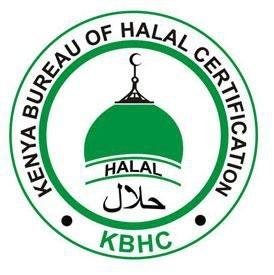In the UK, the demand for halal products has been on the rise. With more consumers wanting to follow their religious beliefs when choosing what to eat and buy, halal certification plays an important role. Halal means “permissible” in Arabic, and halal certification ensures that a product or service is in line with Islamic law. This certification is especially important in food, cosmetics, and healthcare sectors. In this article, we’ll look at what Halal Certifications UK is, how it works in the UK, and why it matters.
What is Halal Certification?
Halal certification is a process that confirms a product or service meets Islamic law. For example, in the case of food, it ensures that the ingredients and the preparation methods are permissible under Islamic dietary laws. This includes how animals are slaughtered, the types of ingredients used, and even the cleanliness of the equipment. A halal-certified product will have a label or a stamp that proves it follows these guidelines.
Why is Halal Certification Important?
Halal certification is crucial for Muslims who want to ensure that the food they eat, the products they use, and the services they engage with align with their faith. In the UK, with its diverse population, there is a growing need for halal options. Consumers look for the halal label to ensure the product they’re buying meets their religious requirements. Having halal certification builds trust and allows companies to reach a wider audience.
Who Provides Halal Certification in the UK?
There are several bodies in the UK that provide halal certification. These organisations work with businesses to ensure their products meet the required standards. Each certification body has its own set of criteria, but they all follow the same Islamic principles. Some well-known halal certification bodies in the UK include the Halal Food Authority (HFA) and the Halal Monitoring Committee (HMC). These organisations inspect products and facilities, ensuring they meet halal standards before giving certification.
The Process of Getting Halal Certified
For a business in the UK to get halal certification, they need to go through a strict process. First, they need to apply to a halal certification body. This organisation will review the company’s production process, ingredients, and even the suppliers. The company will also need to provide details about how they handle and store their products.
Once the inspection is complete, and if everything meets the standards, the company will be granted halal certification. The business will need to continue following the guidelines set by the certification body, as they will undergo regular inspections to keep the certification.
What Types of Products Need Halal Certification?
Many different products can be certified as halal. The most common is food. Halal certification ensures that the food does not contain any pork, alcohol, or any other prohibited ingredients. Meat, in particular, must come from animals that were slaughtered according to Islamic guidelines.
Aside from food, other products like cosmetics, skincare, and medicines can also be halal-certified. For instance, cosmetics must not contain any haram (forbidden) ingredients, and the production process must be clean and free from contamination. The same goes for medicines. Halal certification ensures that the product is safe for Muslims to use and free from ingredients that are not allowed in Islamic law.
Halal and the UK Market
The UK has a significant Muslim population, and the demand for halal products is growing every year. Many supermarkets now carry a wide range of halal products, from meat to snacks. The food industry is not the only sector seeing growth. Many companies in the healthcare and beauty industries are now seeking halal certification to cater to their Muslim customers.
As more consumers become aware of the benefits of halal certification, it has become a key factor for businesses looking to expand their reach. Companies that offer halal-certified products can stand out from their competitors and build a loyal customer base.
Challenges in Halal Certification
One of the challenges of halal certification in the UK is consistency. Not all halal certification bodies follow the same standards. Some organisations are stricter than others, and this can lead to confusion among consumers. To avoid this, it’s important for businesses to choose a reputable certification body.
Another challenge is the cost of certification. Small businesses, in particular, may find it expensive to go through the certification process. However, the benefits often outweigh the costs, as halal certification can open up new markets and increase sales.
The Future of Halal Certification in the UK
As the UK’s Muslim population continues to grow, the demand for halal-certified products is expected to increase. More businesses are likely to seek halal certification, not just in the food industry but also in other sectors like cosmetics, pharmaceuticals, and even fashion.
Technology is also playing a role in the future of halal certification. Consumers can now use apps to check if a product is halal-certified, making it easier for them to make informed decisions. This convenience will likely lead to even more demand for halal-certified products in the coming years.
Conclusion
Halal certification is an essential part of the UK’s diverse market. It ensures that products and services meet the religious requirements of Muslim consumers. From food to cosmetics and healthcare, halal certification is growing in importance across many industries. For businesses, getting halal-certified can help build trust with customers, expand their market, and stay competitive. While there are challenges in the certification process, the benefits far outweigh them, making halal certification a valuable investment for companies in the UK.



